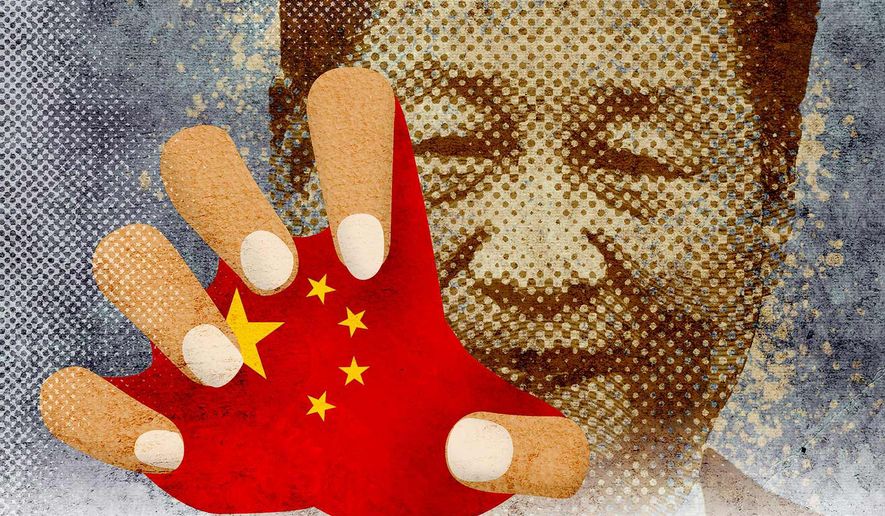OPINION:
If you have been publicly critical of the Communist Chinese regime’s crushing of Hong Kong, hinted that you believe the COVID-19 virus may have escaped from a Chinese laboratory in Wuhan, or spoken favorably about Taiwan, Beijing’s security forces are claiming the right to come after you as part of China’s on-going campaign to silence its critics.
In 2020 the US Department of Justice indicted five Chinese agents in New York who were part of something called “Operation Foxhunt,” set up on orders of Chinese President and Communist Party Chairman Xi Jinping to harass and return dissidents who have fled China for trial. Prosecutors charged that these “foxhunters” warned several US citizens of Chinese descent and others that unless they returned to China, their Mainland relatives would pay a heavy price for their obstinacy.
There is thus far no evidence that the Communist regime has kidnapped targets within the United States, but its agents do so when they believe they can get away with it in other countries. In 2016, a Chinese journalist who fled to India and Thailand to avoid arrest and persecution for criticizing the regime vanished while traveling in Southeast Asia only to turn up later as a prisoner in China.
Xi Jinping’s regime considers critics “a security threat” and asks the rest of the world to treat them as terrorists or criminals who should be apprehended and turned over to Beijing’s security forces. They routinely request international help, posting the names of dissidents with Interpol and asking other governments to deport or extradite them to stand trial in China.
Beijing’s attacks on freedom of speech and the press in Hong Kong created a firestorm of international disgust, which only encouraged Beijing to expand the worldwide attack on their critics. Beijing contends that their 2020 “National Security Law “extra-territorial “legal” authority to crack down on “criminals” who, for example, “like” a Twitter post critical of Chinese policy. While the new law was initially directed at Chinese critics of the regime’s Hong Kong policy, many believe it can and will be used against anyone who says or writes anything Beijing finds offensive.
This fear stems from a new law’s Article 38, which gives Chinese security forces the authority to visit similar punishment on anyone who expresses disagreement with Chinese policies. The language of Article 38 claims jurisdiction in cases arising “outside the region by a person who is not a permanent resident of the region.” As Donald C. Clark, a law professor at George Washington University, said after reading Article 38, “It is asserting extraterritorial jurisdiction over every person on the planet.”
The language of Article 38 is a threat designed to make businessmen, academic experts, and reporters the world over to think twice before criticizing Beijing. It means, for example, that anyone who has expressed any criticism who later travels to China, Hong Kong any nation prepared to do Beijing’s bidding may be turned over to Beijing for arrest, trial, and imprisoned by the regime for statements made in London, New York, or Washington.
In cases involving critics who have gotten under Xi Jinping’s skin, it means China might ask other countries to arrest and turn one of their own citizens over to his security forces to be tried for their “crimes” in China. At present, few governments are likely to cooperate with this blatant attempt to make them accessories to repression, but that could change, and the mere possibility that this could happen represents a risk that will chill travel by businessmen and women, diplomats, journalists, and even vacationers who will never know if they are about to be surrendered to China for having expressed opinions critical of the Chinese Communist regime or its policies.
As the meaning of Article 38 and its implications has become clear, many nations worldwide have rescinded or suspended their extradition treaties with China. Australia, Britain, Canada, and the United States were the first to let Beijing know they would not comply with any extradition requests. Other countries have followed.
But those making money in China are tacitly accepting Beijing’s right to censor. Last month Marriott quickly apologized when one of its employees “liked” a tweet that referred to Tibet as a country” and promised Beijing they would see to it that “errors like this don’t happen again.” And last week, Twitter began redirecting inquiries about Taiwan to China. As Human Rights Watch summed up, “One can no longer pretend that Chinese suppression of independent voices stops at its borders.”
In another day, the world would have laughed Beijing’s tactics off as outrageously unenforceable and an insult to anyone who values freedom. Last fall, in the world we now live in, the United Nations elected China a member in good standing of the UN’s Human Rights Council.
• David A. Keene is an editor at large for the Washington Times.




Please read our comment policy before commenting.